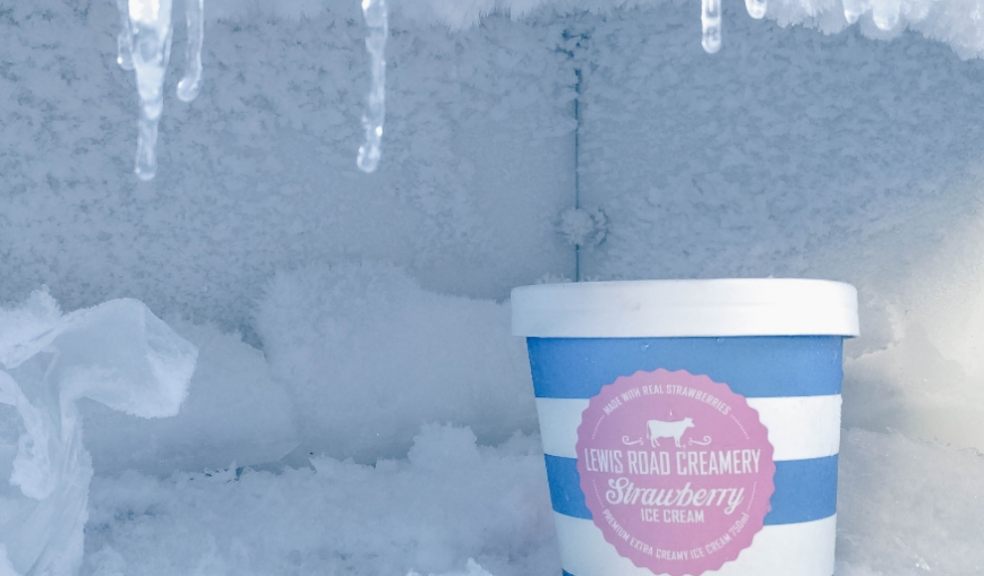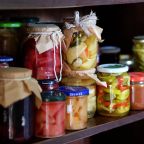
Five food storage hacks to make your food go further
With the rising cost of living, we’re all trying to find ways to make our weekly shop go further. As well as shopping smarter, did you know that you can actually prolong the life of some of your food shop staples, just with a few simple storage hacks.
We caught up with food industry expert Hannah Anderson, CEO of ethical online food brand 44 Foods to get some of her storage hacks that won’t just help your food last longer but will reduce food waste too.
1. Resist the rinse
“When you’re buying loose fruits or vegetables from the supermarket or your local food producer, it can be tempting to head straight to the sink when you get home to give them a good wash before they go in the fridge.
“In fact, when it comes to making your food last longer, it’s actually best to only wash your fruit or veggies just before you use them. Washing ingredients straight away can leave excess moisture which, once you’ve stored them, can lead to quicker mould growth. So if you want to make the most of your fresh produce, resist the rinse!”
2. Suss out your fridge shelves
“Where you store your food in the fridge can impact how long things last. It goes back to your science classes at school - heat rises and it’s the same principle within your fridge. The bottom of your fridge is cooler than the top which is why most fridges have a crisper drawer at the very bottom because that’s where it’s the least humid, making it perfect for veggies, salad items and fruits.
“Fresh meat should always be stored on the lower shelves as again, it’s colder and this will help your meat to last longer. The higher shelves are best for prepared foods - so things like leftovers are best up here as they’re things you want to use quickly and it’s the warmest part of the fridge. Remember though, not everything needs to go in the fridge and things like potatoes and onions do best in a cool, dark, well ventilated area.”
3. Say cheese
“Have you ever wondered why cheese bought at the supermarket will usually come in plastic wrap whereas if you pick some up from a local farm shop, it’s usually wrapped in some kind of parchment paper? As some of our expert 44 Foods cheese producers will tell you, that’s because paper wrappings allow cheese to breathe which plastic doesn’t. Cheese needs to take in oxygen, which not only helps the flavour but helps it to last longer and by wrapping it in plastic or cling film, you create the perfect environment for bacteria to grow. So when it comes to cheese, parchment is best.”
4. The sniff test
“Some major supermarkets like Morrisons and the Co-Op have already scrapped the use of use-by dates on things like milk and yoghurts in a bid to reduce food waste. With a mission to reduce food waste, we’re all for it and we’d always recommend the good old fashioned sniff test! Milk has a distinctive sour smell when it’s gone off so that’s the number one sign but if your milk starts to take on a yellow colour or starts to go lumpy, it’s time to get rid. If it still smells fresh, you’re good to go!”
5. The great egg debate
“There’s long been a debate on the best way to store eggs to keep them fresher for longer - to fridge or not to fridge? According to British Lion eggs, to keep your eggs fresh, the fridge really is the best place for them. We also recommend keeping your eggs in the carton they come in. Although lots of fridges come with their own egg storage trays, the cardboard carton is the original and the best for a very good reason - eggshells have tiny pores which can take in bacteria or even smells from other foods around them. The carton protects them from all of that making them last longer. Plus, you can recycle the cardboard carton too!”
For more tips on how to get the most out of your food or to find out more about reducing your food waste, visit www.44foods.com













